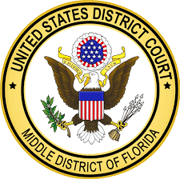Understanding Data Breach: Can You Sue for Invasion of Privacy?
Breach of Confidence Law in Florida
Though not as well known as negligence, your Florida data breach attorney may choose to bring a tort claim for breach of confidence. The elements for a breach of confidence action vary by state, but many of the claims involve the same common elements: 1) a confidential relationship, such as between doctor and patient or client and attorney, that assures transmitter of information that the receiver of the information disclosed will keep it secret, 2) reliance by the disclosing party that the receiving party will keep the disclosed information secret, 3) disclosure of the information to a third party by the receiving party, and 4) the disclosure of the information to a third party causes the victim to incur damages. See, e.g., Horne v. Patton, 287 So. 2d 824, 827-29 (1973).
Of course, the fact that the requirements for a breach of confidence claim vary widely by jurisdiction only reinforces how important it is that you retain an experienced data breach attorney to evaluate your claim. For example, in the Law Review article “Reflections on Breach of Confidence from the U.S. Experience, Charles Rowe, a professor of law at Washington and Lee University, outlines just a few of the concerns and complexities associated with breach of confidence claims that both the Ohio Supreme Court and the United States Supreme Court have addressed, and not surprisingly, Professor Rowe describes claims of breach of confidence as a type of claim that “is still taking shape.”
Intrusion Upon Inclusion & Invasion of Privacy
Another claim your Florida data breach attorney might choose to bring in a data breach lawsuit is one for intrusion upon inclusion and invasion of privacy. Though these are separate claims, they are interconnected from one side. Meaning, according to the Restatement (Second) of Torts § 652B (1977), if a person engages in conduct constituting intrusion upon inclusion, they have by definition committed an invasion on their victim’s privacy, but a person can commit an invasion of privacy without engaging in conduct that constitutes an intrusion upon inclusion.
The Restatement defines intrusion upon inclusion as when a person “intentionally intrudes, physically or otherwise, upon the solitude or seclusion of another or his private affairs or concerns . . . ,“ but the offending individual will only be held liable to their victim if “the intrusion would be highly offensive to a reasonable person.” The Restatement’s definition of this cause of action is significant because it has been adopted in certain states. See Tate v. Woman's Hosp. Found., 56 So. 3d 194, 197 (La. 2011) (“A tort of invasion of privacy can occur in four ways: (1) by appropriating an individual's name or likeness; (2) by unreasonably intruding on physical solitude or seclusion; (3) by giving publicity which unreasonably places a person in a false light before the public; and (4) by unreasonable public disclosure of embarrassing private facts.”).
What is an Example of Invasion of Privacy?
For example, in California, in order for you to prevail on a claim of invasion of privacy by intrusion upon inclusion, you must prove that the defendant 1) intruded into a private place, conversation, or matter, 2) in a manner that is highly offensive to a reasonable person. Opperman v. Path, Inc., 84 F. Supp. 3d 962, 973 (N.D. Cal. 2015). In the case of Opperman v. Path, a group of apple-product users sued the cell phone maker and some of its app developers for, among other things, invasion of privacy, alleging that Apple had engaged in a mass marketing campaign in which it purposely misrepresented its iDevices (iphone, ipad, or ipod touch) as being secure and incapable of having their data, and particularly their address book data, accessed without the permission of the iDevice’s owner. Id. at 971.
Apple and the app developers filed a Motion to Dismiss, and in denying the motion, the court held that the users had alleged sufficient facts to support an invasion of privacy claim, even though some of the users had given limited consent to allowing certain parties to access the data. This holding demonstrates a few things. First, the mere unauthorized accessing of data can support an invasion of privacy claim. Second, a defendant can invade someone’s privacy by going beyond the scope of any consent obtained to access the data, and finally, even the exposure or breach of mondaine data, such as address book data, can be offensive enough to support an invasion of privacy claim. As such, it's important for you to consult with an experienced data breach attorney about any breach of your data that has occurred, not just a breach of highly sensitive data such as your social security number, to ensure that you know precisely what your legal rights are in any given situation.
Data Breach Attorney in Florida
The Peck Law Firm, P.A. has been assisting clients with their legal matters for years, and our data breach attorney is ready to discuss your data breach lawsuit today. So, if you have had your private information stolen after a data breach or exposure, contact the Peck Law Firm, P.A. today to see if a data breach attorney can help you!!



